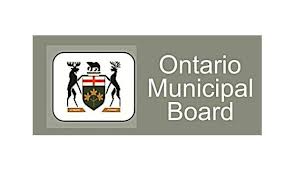The Ontario Municipal Board needs to be reined in

Big land developers hire high-priced lawyers to pave the way for the paving of more farmland — and more monster homes
By MARTIN REGG COHN Toronto Star
If at first you fail, reform, reform again.
For the third time since taking power, the Liberals are trying to rein in an all-powerful force that has resisted change for decades. They’d better act fast.
If not, the Ontario Municipal Board will continue to overrule and overpower the people and politicians in our municipalities, while thwarting the province’s best-laid plans.
And it will remain the favourite plaything of powerful land developers who know how to profit from its institutional bias. By hiring high-priced lawyers (a cost of doing business) big business profits from the OMB’s blind spots — which pave the way for the paving of yet more farmland, and the amassing of more monster homes.
How has this all-powerful, quasi-judicial body wreaked so much havoc for so long? For most Ontarians, it was simply out of sight and out of mind, an anachronism from another century.
Like the Senate — another outdated institution with the power to overrule elected politicians — the OMB offered lifetime sinecures (until the 1990s) for cronies appointed by the government of the day. It dates from the 19th century, when it was conceived to regulate the railways and oversee embryonic municipalities.
Today it is a uniquely powerful appeal body in North America, imposing its vision on grown-up cities such as Toronto and Ottawa. Its panellists — often operating as one-person decision makers — overturn municipal planning decisions, relitigate local rulings, ignore provincial directives, and make a mockery of common law principles of predictability.
No wonder developers dote on the OMB. They know how to weaponize the system to outmuscle local neighbourhood groups that are easily out-lawyered, outspent and outmanoeuvred.
Kathleen Wynne should know. As a former minister of municipal affairs, she saw the OMB in action, up close. As premier, she presided over a half-hearted reform initiative in 2013, which built on procedural tinkering by the Liberals in 2006.
Now, her government has produced a new consultation paper that promises a more ambitious reset. Wynne briefed mayors from across the GTA and Hamilton area this week, and her Liberals will start fine-tuning these key themes later next month:
Ending those indefensible “de novo” hearings, in which the OMB starts from scratch to hear a case without reference to the findings and conclusions of the municipal council or committee that has already heard the evidence.
Restoring the “appeal” in the appeals process, so that the OMB spends more time ensuring proper procedures and laws were followed at council level, rather than merely second-guessing the planning departments and local politicians who are on the front lines.
Sending cases back to the municipalities for a do-over if the developer redoes his application with major changes. Too often, developers hold back at the local level, banking on an OMB hearing that gives the last word on their final offer. If new information arises, the OMB shouldn’t substitute itself for a municipal body at ground level.
Adding more rigour by insisting on two-person panels, rather than reposing all power in a single adjudicator who never went to law school. One-person rulings are too subject to subjectivity and arbitrary decisions.
These are all good ideas, long overdue. Toronto’s chief planner has urged city council to support the reforms. Past calls for the OMB to cede responsibility to a specialized Toronto body have faded, so perhaps it’s time to get it right province-wide.
Ottawa Mayor Jim Watson, a former municipal affairs minister, argues that the much-maligned OMB has its merits: Every process is prone to appeal and this one is cheaper than going to court, litigating until one side runs out of money.
But the OMB’s rough justice needs to be smoothed out by making it dramatically more responsive, responsible and professional. It remains a Byzantine process that is overly adversarial, navigated by expensive experts, inaccessible and unaffordable. It coddles developers while circumventing community consultations.
The OMB also needs to reread the provincial rules that it is supposed to be applying. In a perversion of the process, it undermined the Growth Plan in Waterloo Region that was designed to curb sprawl, backing developers who appealed municipal plans to preserve prime farmland.
By overruling the province’s best-laid plans to promote intensification, the OMB has set itself up as a surrogate (and rogue) planning entity. An appeal board that doesn’t understand the need to rein in sprawl needs to be reined in itself — for the third and last time.









Great article!
The OMB should be scrapped because it serves no purpose other than appeasing the people (developers) with the deep pockets to get their way.
The bottom line is that the planning decisions made by municipal councils should not be able to be challenged if they abide by their OP, PPS and Places to Grow Act. Too many times councils are afraid to make the appropriate planning decisions for fear of being challenged at the OMB and then having to spend taxpayer money to pay the huge legal fees. That is why the OMB does not make sense anymore, and should be scrapped.